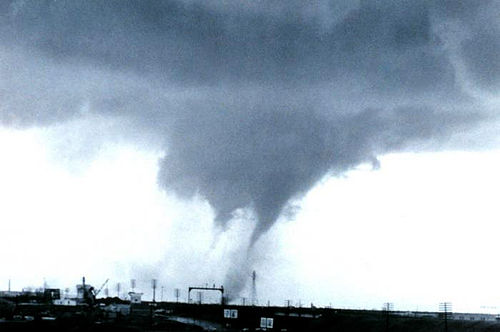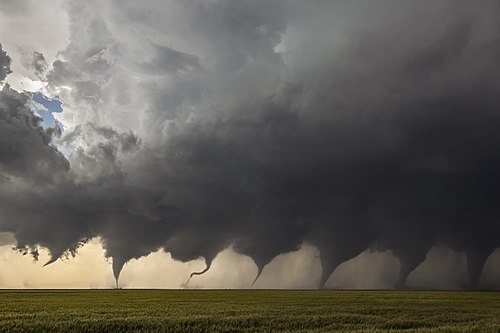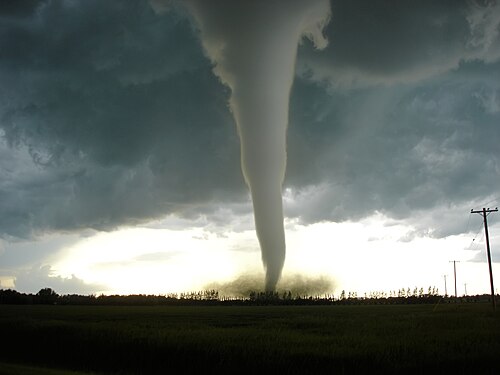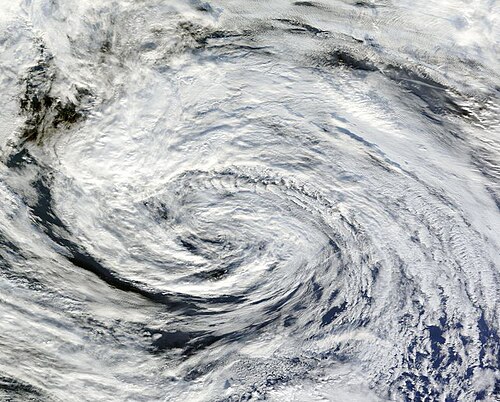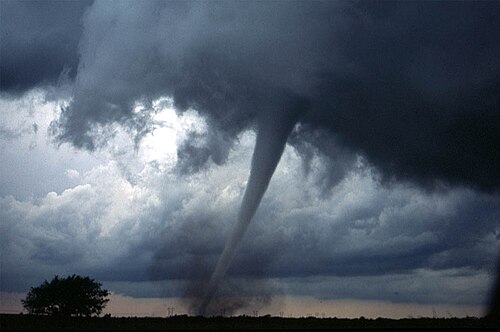Galeverb
To sing; charm; enchant.
Galeverb
To cry; groan; croak.
Galeverb
To talk.
Galeverb
To call.
Galeverb
To sing; utter with musical modulations.
Galeverb
(nautical) To sail, or sail fast.
Galenoun
(meteorology) A very strong wind, more than a breeze, less than a storm; number 7 through to 9 winds on the 12-step Beaufort scale.
Galenoun
An outburst, especially of laughter.
Galenoun
(archaic) A light breeze.
Galenoun
(obsolete) A song or story.
Galenoun
A shrub, also called sweet gale or bog myrtle (Myrica gale), that grows on moors and fens.
Galenoun
(archaic) A periodic payment, such as is made of a rent or annuity.
Galenoun
A strong current of air; a wind between a stiff breeze and a hurricane. The most violent gales are called tempests.
Galenoun
A moderate current of air; a breeze.
Galenoun
A state of excitement, passion, or hilarity.
Galenoun
A song or story.
Galenoun
A plant of the genus Myrica, growing in wet places, and strongly resembling the bayberry. The sweet gale (Myrica Gale) is found both in Europe and in America.
Galenoun
The payment of a rent or annuity.
Galeverb
To sale, or sail fast.
Galeverb
To sing.
Galenoun
a strong wind moving 45-90 knots; force 7 to 10 on Beaufort scale
Gale
A gale is a strong wind, typically used as a descriptor in nautical contexts. The U.S. National Weather Service defines a gale as 34–47 knots (63–87 km/h, 17.5–24.2 m/s or 39–54 miles/hour) of sustained surface winds.
Tornadonoun
(meteorology) A violent windstorm characterized by a mobile, twisting, funnel-shaped cloud.
Tornadonoun
A violent whirling wind; specifically (Meteorol.), a tempest distinguished by a rapid whirling and slow progressive motion, usually accompaned with severe thunder, lightning, and torrents of rain, and commonly of short duration and small breadth; a small cyclone.
Tornadonoun
a localized and violently destructive windstorm occurring over land characterized by a funnel-shaped cloud extending toward the ground
Tornadonoun
a purified and potent form of cocaine that is smoked rather than snorted
Tornado
A tornado is a violently rotating column of air that is in contact with both the surface of the Earth and a cumulonimbus cloud or, in rare cases, the base of a cumulus cloud. The windstorm is often referred to as a twister, whirlwind or cyclone, although the word cyclone is used in meteorology to name a weather system with a low-pressure area in the center around which, from an observer looking down toward the surface of the earth, winds blow counterclockwise in the Northern Hemisphere and clockwise in the Southern.






